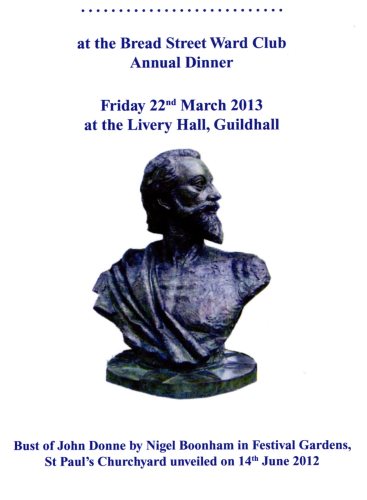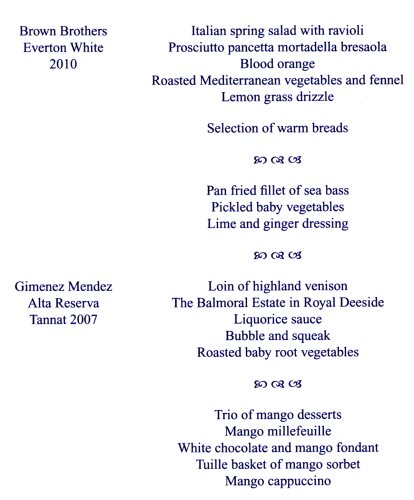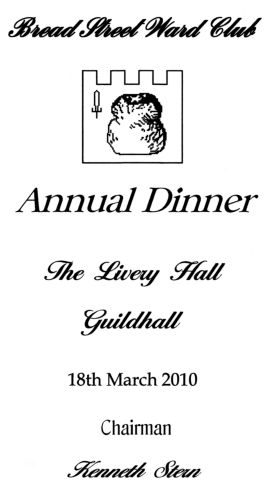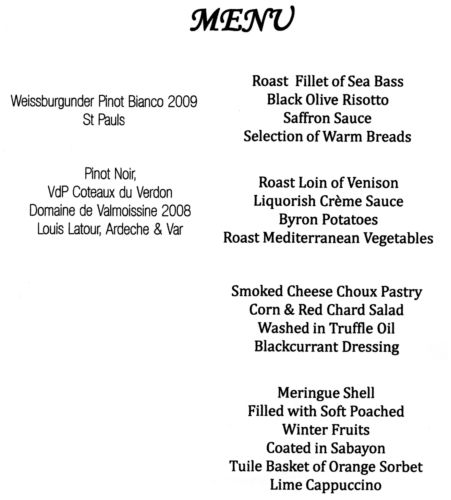
Tel: 020 7620 1818 email: cookandbutler@btconnect.com Company Number 05143672
Bread Street Ward Club
www.breadstreetwardclub.org
Annual Dinner
March 2016, The Livery Hall, Guildhall, City of London
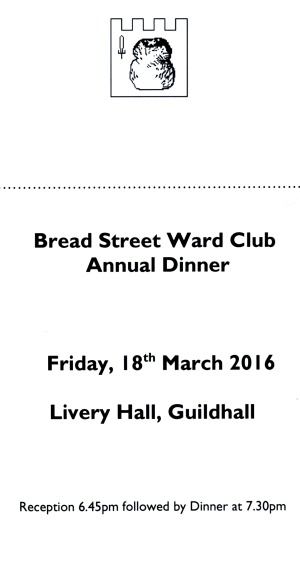
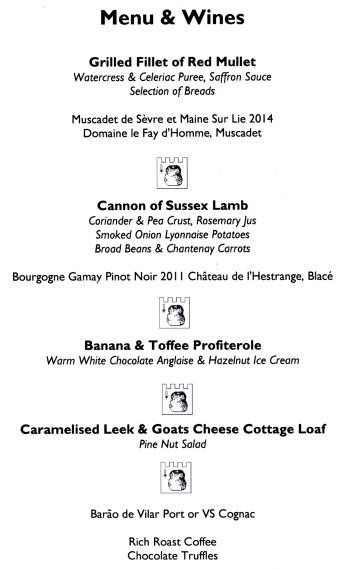
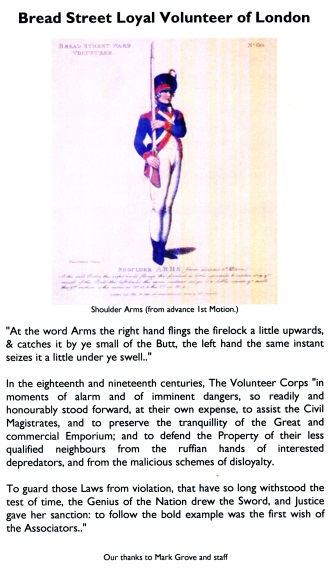

Bread Street Loyal Volunteer - Shoulder Arms
"At the word Arms the right hand
flings the firelock a little upwards, & catches it by ye small of the Butt,
the left hand the same instant seizes it a little under ye swell."
In the eighteenth and nineteenth centuries, The Volunteer Corps "in moments
of alarm and of imminent dangers, so readily and honourably stood forward,
at their own expense, to assist the Civil Magistrates, and to preserve the
tranquillity of the Great and commercial Emporium; and to defend the
Property of their less qualified neighbours from the ruffian hands of
interested depredators, and from the malicious schemes of disloyalty.
To guard those Laws from violation, that have so long withstood the test of
time, the Genius of the Nation drew the Sword, and justice gave her
sanction; to follow the bold example was the first wish of the Associators."

Annual Dinner
March 2015, The Livery Hall, Guildhall, City of London
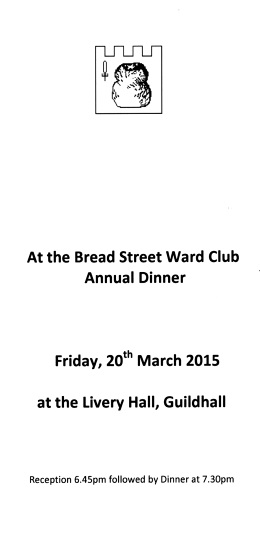
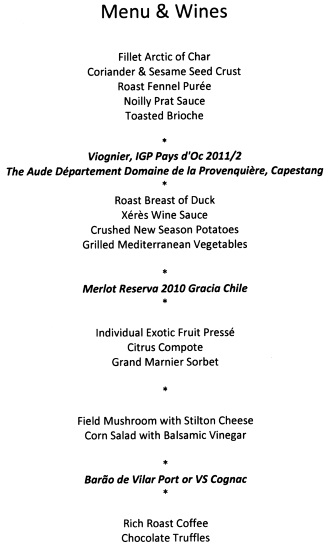
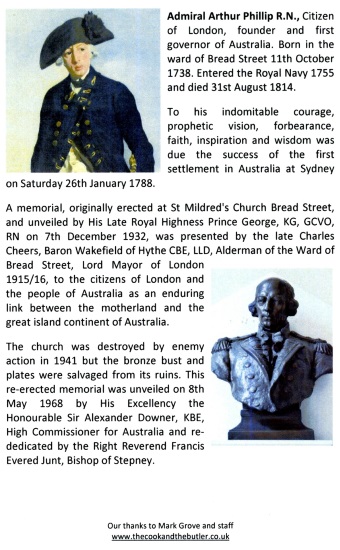

Admiral Arthur Phillip R.N., Citizen of
London, founder and first governor of Australia. Born in the ward of Bread
Street 11th October 1738. Entered the Royal Navy 1755 and died 31st August
1814.
To his indomitable courage, prophetic vision, forbearance, faith,
inspiration and wisdom was due the success of the first settlement in
Australia at Sydney on Saturday 26th January 1788.
A memorial, originally erected at St Mildred's Church Bread Street, and
unveiled by His Late Royal Highness Prince George, KG, GCVO, RN on 7th
December 1932, was presented by the late Charles Cheers, Baron Wakefield of
Hythe CBE, LLD, Alderman of the Ward of Bread Street, Lord Mayor of London
1915/16, to the citizens of London and the people of Australia as an
enduring link between the motherland and the great island continent of
Australia.
The church was destroyed by enemy action in 1941 but the bronze bust and
plates were salvaged from its ruins. This re-erected memorial was unveiled
on 8th May 1968 by His Excellency the Honourable Sir Alexander Downer, KBE,
High Commissioner for Australia and re-dedicated by the Right Reverend
Francis Evered Junt, Bishop of Stepney.
